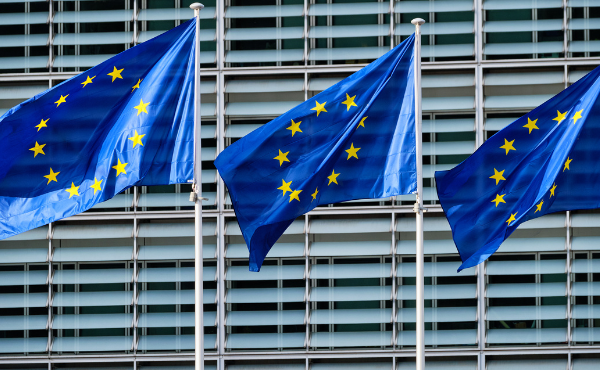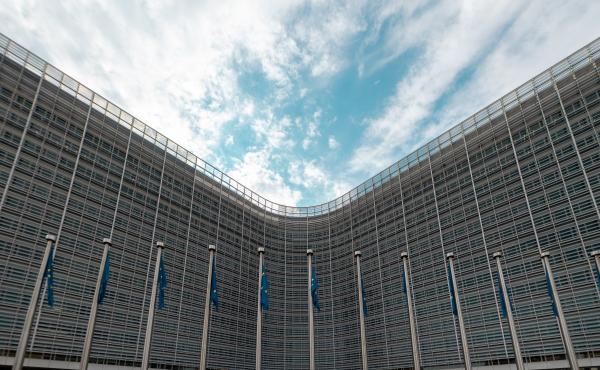
The ECGI blog is kindly supported by

Unsustainable Sustainability
Professors Sjåfjell and Mähönen from the University of Oslo open the new OBLB series on the Corporate Sustainability Due Diligence Directive Proposal by offering a rather harsh critique of the opposition by Nordic company law scholars to the Commission’s so-called sustainable corporate governance initiative back in October 2020 that preceded the new proposal. As I was part of that opposition, I feel called to explain the reasons for our opposition and why we still believe that opposing the initiative is even more important now in this grave time for Europe, where we simply cannot afford to remain naïve and pursue unsustainable sustainability efforts.
Sjåfjell and Mähönen deplore that our common response to the public hearing back in October 2020 has been ‘understood – falsely – as being a statement on behalf of Nordic company law scholars generally, and even further – as representative of Nordic countries.’ Of course, we suggested nothing of the sort, because we knew very well that our two colleagues in Oslo did not want to join. But those who may have understood it this way had good reasons to: the response represented the vast majority of Nordic company law scholars, some 21 scholars from all five Nordic countries, and it did in fact match the public stance of the Danish and Swedish governments as well as that of our national Corporate Governance Committees, all urging that the initiative on directors’ duties be separated from the initiative on due diligence. But even taking into account the vast opposition from the Nordic scholars, it would be wrong to see it as being typically Nordic. The opposition was much broader than that. It included scholars from all over the EU, top scholars from the US, and esteemed expert groups such as the ECLE and ECGI scholars. Nor were the Nordic governments alone in their opposition: they were joined by France, the Baltics and many more.
...shareholders are the main drivers of the green transition because they worry about the long-term prospects of the companies they invest in, as this is how their shares are valued.
What could explain this unprecedentedly broad opposition to the initiative on sustainable corporate governance from the Member States that are among the most dedicated to sustainability? The answer is easy: the part of the Commission’s initiative on directors’ duties that attracted the opposition was extreme beyond anything seen in this area before. It was based on a simplistic view of shareholders as the privileged ‘1%’ and as greedy short-termists who would use their powers under national company law to suck companies dry of capital and thus prevent companies from investing in the green transition. The reality, of course, is the opposite: shareholders are the main drivers of the green transition because they worry about the long-term prospects of the companies they invest in, as this is how their shares are valued. So, shareholders are holding management to account for environmental risks and expect the EU to provide the necessary regulation to enable their monitoring, including a clear taxonomy and guidelines on non-financial transparency to prevent managers from greenwashing. This is Economics 101, or ought to be.
When your worldview is twisted, it is very difficult to provide the empirical evidence necessary to overcome the requirement of subsidiarity enshrined in art 5 of the Treaty on European Union (‘TEU’). Consequently, the initiative on directors’ duties turned out to be completely inadequate, leading the Commission’s own quality control body, the Regulatory Scrutiny Board ('RSB'), to reject the initiative in May 2021.
This should have been the end of it, but with a surprise worthy of a Hollywood Zombie-movie, the Commission tried to resurrect the initiative on directors’ duties in October 2021, only to have it rejected once more and on the same grounds by the RSB in November 2021. This second rejection appears to have fed a conspiracy theory among certain MEPs that the RSB was in thrall to nefarious business interests, and they petitioned for access to documents held by the RSB to ‘resolve any doubt on the integrity, objectivity and impartiality on the process and indeed in the [RSB]’s interpretation of its mandate’. The idea died, though, when the RSB on the third page of its reply shared its reasons for rejection, citing, inter alia, a ‘lack of clarity and evidence’. The MEPs could have learned this by simply listening to the opposition from scholars and governments made during the hearings back in October 2020.
Our companies should only face liability for their own actions when violating clear and exact obligations described in full in statutory texts, and the presumption of innocence should apply, leaving the burden of proof on authorities.
The fierce and massive opposition was directed at the attempt to harmonise directors’ duties under the false flag of sustainability; false, because directors’ duties already require them to take into account environmental risks on par with all other foreseeable risks. It is thus an important step forward that the Commission has now reduced its proposal to sustainability due diligence. This is not in any way as extreme and controversial as the initiative on directors’ duties; in fact, this kind of due diligence is already well known in several Member States. What is required in such a directive on due diligence is to ensure that the obligations levied on companies are clear and exact, which is quite a challenge within the area of human rights, where standards are often drafted in the high and lofty tones of international law and treaties. Furthermore, if the directive wants to take human rights seriously, it should also do so in respect of the companies falling under the scope of the directive. Our companies should only face liability for their own actions when violating clear and exact obligations described in full in statutory texts, and the presumption of innocence should apply, leaving the burden of proof on authorities.
The other part of the Commission’s originally two-pronged initiative on so-called ‘sustainable corporate governance', the one on directors’ duties, appears to have been abandoned, since the new proposal according to its title only concerns ‘Corporate Sustainability Due Diligence’. But appearances can be deceptive. A closer look at the proposal reveals that provisions from the aborted initiative on directors’ duties have been smuggled into the new proposal.
There is absolutely no need to harmonise the national laws of Member States governing the internal operations of the company as long as the company complies with its duties.
A directive on due diligence will impose certain, hopefully specific, duties on the companies within its scope. These duties pertain to the company as an entity and are levied upon the company from the outside by the EU legislator. There is absolutely no need to harmonise the national laws of Member States governing the internal operations of the company as long as the company complies with its duties. And yet, the Commission’s proposal attempts to do just that, for example requiring in art 15 that a company’s ‘business model and strategy’ be compatible with the Paris Agreement, a fuzzy political agreement that most Member States find difficult to uphold themselves. The proposal furthermore attempts to direct what directors’ duties should comprise in respect of sustainability (arts 25-26) and in art 19 enables ‘any natural or legal person that has reasons to believe, on the basis of objective circumstances, that a company does not appropriately comply with the provisions of this Directive, (…) to submit substantiated concerns (…) to the supervisory authorities’. This would allow free access for everybody to complain about every decision made by management if it is contended that it somehow falls short of furthering the Paris Agreement or similar vaguely defined rights in international treaties and texts covered by the directive.
If you rightly wonder what on earth possesses the Commission for it to attempt this kind of harmonisation, the arguments advanced by Sjåfjell and Mähönen may give you a clue. They set out by defeating a well-known strawman, that of the shareholder/stakeholder dichotomy. It is good to counter this dichotomy, because as P. T. Barnum once observed, ‘there's a sucker born every minute’, and so although these arguments are well known to anybody working in company law, they still need to be aired occasionally, especially since this particular idea seems to motivate those who backed the anti-shareholder ideology behind the now abandoned initiative on sustainable directors’ duties. We all agree, the dichotomy is sheer nonsense.
However, Sjåfjell and Mähönen seem to put their faith in what they call a company’s ‘purpose’ as ‘an element in ensuring the contribution of business to sustainability’. So, they still want to tell private sector companies how to run their business, but without going the traditional route of investing in the companies. Rather, it should all be done scientifically, based on the research done by them and their like-minded colleagues and forced on companies by way of an EU directive.
No citizen should be treated as a mere instrument of State policy, nor should their companies.
According to Sjåfjell and Mähönen, this is more in line with ‘the European societal approach to companies with its long history’ as opposed to ‘the US-originated efficiency-based approach with its much shorter history (and weaker basis)’. I’m not so sure. The idea that companies are somehow not private enterprises governed by private individuals but subservient to the state is indeed very old in Europe; it ended with absolutism and the introduction of liberal democracy in the 19th century. Since then, the perception of the State in European thinking has changed in favour of the individual. We no longer view the State as our master but as our servant. That is why we call the representatives of governments ministers. It is true that at some points in the troubled 20th century there were competing ideas that would put the State above its private citizens, known under the once-popular catch-phrase of ‘Gemeinnutz vor Eigennutz’, or as it was expressed by contemporary Italian corporatism: ‘everything in the State, nothing outside the State, nothing against the State’. But these were short-lived and local aberrations, and in the rest of Europe, the idea that private citizens may freely and without State interference take up commercial activity and pursue business interests alone or together in companies remained just as strong as it has always been in the US. If a company wants to pursue a purpose, be that environmental or otherwise, it may do so; it should not be ordered to pursue any purpose by dictate of the State. No citizen should be treated as a mere instrument of State policy, nor should their companies. Or to paraphrase Milton Friedman: the business of a business is nobody else’s business. If you want to order a company around, buy its shares.
Equally important is to remove the possibility of private parties and NGOs to file claims against companies simply based on the decisions made by that company.
And so it is of paramount importance that our MEPs and the Member States remove provisions like art 15 obliging companies to serve the Paris Agreement and arts. 25-26 on directors’ duties before they contaminate the otherwise sound idea of sustainability due diligence. They are clearly unnecessary and irrelevant to the overall purpose of the directive, and as such, they are obviously contrary to both the principles of subsidiarity and proportionality enshrined in art 5 of the TEU.
Equally important is to remove the possibility of private parties and NGOs to file claims against companies simply based on the decisions made by that company. To the extent that any supervision or enforcement is necessary, it must be done by public authorities. If any private parties believe they have a claim against the company, they should avail themselves of our excellent judiciary system with independent and incorruptible courts.
In these dark days for Europe, it should be obvious that we need to become less naïve and quickly so. This directive proposal concerns the access of European companies to foreign markets, which is of vital importance to our strength, security and well-being. So, we need to make absolutely sure that our companies will not be obstructed or prevented from foreign markets by hostile foreign powers. Our naivety has already put us in a precarious situation, where our ability to resist the Russian onslaught on Ukraine is seriously hamstrung by our dependence on Russian gas due to a forced and ill-planed rush to complete the green transition without any considerations of security or long-term planning. If anything has turned out to be deadly short-termism, this is it. As the commentator Walter Russell Mead remarks, we have now learned ‘that energy policy is too important to be left to climate activists’. We must safeguard our companies and ensure that they can continue to compete on foreign markets undisturbed by the authoritarian powers that would like to keep these markets to themselves. The new proposal on sustainable due diligence is so much more than just about sustainability and, in its current form, contains provisions that are just unsustainable.
Jesper Lau Hansen is a Professor of Law at the University of Copenhagen
The ECGI does not, consistent with its constitutional purpose, have a view or opinion. If you wish to respond to this article, you can submit a blog article or 'letter to the editor' by clicking here.
An initial version of this article ‘Unsustainable Sustainability’ by Jesper Lau Hansen was published at the Oxford Business Law Blog, the University of Oxford on 08 March 2022.
This post is published as part of a new OBLB series on ‘The Corporate Sustainability Due Diligence Directive Proposal’.




